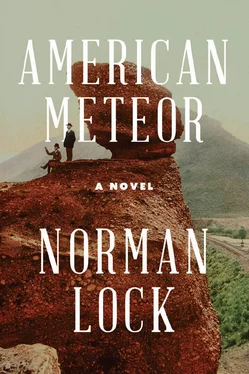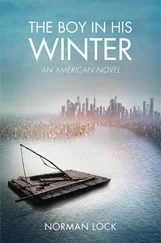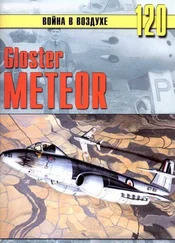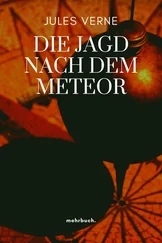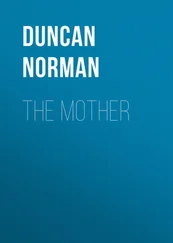While the men swallowed the treacle served up above, Little Will and I sweat over craps with the stokers in the infernal weather of the steamboat’s hold. Craps —a vulgar word whose origin is crapaud , meaning “toad” in French— refers to a crap shooter’s squat, if you’re curious. We must paper ourselves with facts, even if we are mistaken in them. I would not tell you to lie, although it would not behoove you to be overly fastidious concerning the truth. Conjecture and speculation are how the West was won, and much else besides. In any case, craps suited us fine, and I would have lost my bugle to a coal-blackened son of a bitch if a sergeant hadn’t smelled us out and kicked Little Will and me topside with his brand-new boots. They’d look like hell’s own pitch after we landed in Washington City, where the December mud swallowed horses and caissons whole.
All along the East River and through the Narrows, people stood and cheered, waving hats and babies in the air and shouting after us to “hang Jeff Davis from a sour apple tree.” There is no gaiety to equal that hatched by rancor. Fire company bands blared fighting tunes, and a skiff overloaded with drunks tried to foist a trio of barroom floozies on us. We cheered that , I can tell you! But the sailors, swearing under their breath at the intolerance of authority, were ordered to drive them off with poles.
“It’s a shame to throw a fat fish back into the water,” Little Will said.
I took his meaning, but I supposed we were too green to have gotten much by way of nourishment from a floozy, even if we had been afforded the opportunity.
“I’ve got a firecracker in my pocket,” I said to prove I was a hell-raiser, too.
“Let’s toss it down the Charlie Noble,” he replied, referring to the copper stack venting the galley.
I lit the cracker and dropped it down the stack. To the discerning ears of two hellions, it produced a most agreeable sound, like a pig’s bladder when pent-up air is suddenly let loose. The squib set pots and pans to chiming and roused the cook from his greasy lair, armed with a knife useful in flaying carcasses. Only the boat’s yawing saved us from a terrible end. Little Will and I crawled into a lifeboat and fell asleep while Barbados rum was ladled into tins to revive the courage of men whose hearts, like bobbins, were being emptied with each nautical mile of the mystic thread of affection — their heart’s needle listing to the north. By the time the war was finished, the thread would stretch almost to breaking. On that night aboard the Marion , many knew an ecstasy they would not know again, except for a few of them who would find a transporting madness in murder. Those, I think, were the truly damned among us — lives blasted away from the common thoroughfare.
Unseen by Little Will and me, who were kept a while longer blameless and unharmed in childish sleep, the Marion steamed along the Brooklyn and Long Island coasts and then into the Atlantic. Black smoke pouring from her stacks, she hurried southward — rounding the Delaware peninsula, past Fort Monroe — and entered Chesapeake Bay and on to the Potomac River. Often, during the four years to come, she’d steam north through the Narrows to Vinegar Hill — a likely Calvary — her hold packed with Union soldiers wearing wooden coats. In the days after the Draft Riots, the northbound Marion might have passed corpses of former slaves lynched and butchered by New York’s resentful poor — their bodies dumped into the East River and left for the currents to carry them, resignedly, south into everlasting captivity.
Washington City, December 1861–March 1862
What boy wouldn’t be satisfied with days spent playing soldier? That’s what it was like to be in the Army of the Potomac that first winter in Washington City, when the only hardships were mud, which was of a sovereign quality, in keeping with our nation’s capital; rats that deserted the riverbank to join the Union’s sprawl of tents (the rats, too, were sovereign); and the wringer of the interminable drills McClellan put us through while he sat on his high horse, with a hand — like Bonaparte’s — tucked up inside his coat. We were lucky to have missed the Washingtonian mosquito, said to be reared in the pestilential swamps to possess a sparrow’s heft and the sting of a cottonmouth.
On second thought, our bivouac on the Potomac grew stale. Even so engrossing a bit of theater as pretending to kill rebel soldiers with musket or bayonet can become tedious. I missed Broadway and the Battery, the Brooklyn saloons where I sold oysters and, too often, coaxed and kicked my old man home (if you could call it that) from his stupefying and inglorious binges. How fondly I remembered hearing in an Ocean Avenue barroom a waltz tune, cheerful among the shiftless — notes falling unheeded, like gobs of spittle on the sawdust-sprinkled floor! I missed Sheepshead Bay and would gladly have stood up to my knees in winter salt water, raking oysters till my arms dropped off, to be back there again.
I became an expert on my instrument, as Little Will did on his drum. We also became veterans of the boudoir, although the girl on whom we practiced lay not in a swank bedroom on tasseled pillows, but in a hut where black-bound testaments and chaplains’ issues of holy gear were stored. We were too young, Little Will and I, to savor the delicious incongruity. I mean, goddamn it, we gave no thought to irony and none at all to love while we strained after the satisfaction said to fill a man lying in a woman’s lap. To me, it felt like riding a lumpy sack of meal. We were also too young to realize that what a woman is willing to sell a man will not slake, for long, the passion in which he boils.
“Did you enjoy yourself any?” I asked Little Will afterward, while we ran combs through our tousled hair.
“I’d rather wrestle an alligator,” he said, and I had to agree.
Having no more to say on the subject, we ran off to play baseball with other soldiers of Company B who were, like us, temporarily at loose ends. We would look back on this time of childish folly and insouciance with fierce longing, as old men will on the perished days of their youth. Soon enough, we’d all be hotfooting it in hell’s vestibule. But we’d have some colorful tales to tell — those of us who didn’t get themselves scorched.
One day, when I will keep the long hours of eternity below my island of grass, I expect to trade stories with dead folk of every kind, color, and previous occupation. In the cemetery, all men and women are contemporaries; all, the comrades and intimates Walt Whitman praised in his Leaves , with a foolish optimism born of an infatuated heart (you can die of such a heart!) — foolish, because only after we’ve passed into glory or oblivion is the perfect comradeship and intimacy he espoused possible. I’ve often thought how splendid it would be if I could talk to Whitman now. I’d ask him if it is really just as lucky to die as it is to be born. But there is a continent flung between us, whose great divide is more obdurate than granite. One day, when day is meaningless and indistinguishable from night, I hope to find answers to the questions that have vexed me — unless oblivion does win out over the Rapture and eternity is as silent as the tomb.
One question concerns me, myself: Why did I often find it necessary to lie?
Take the story of how I came to lose my eye. Between you and me, it wasn’t the fault of a Confederate shell, as I like to let on, but of my ignorance and panic during the charge at Five Forks. A Union rifleman beside me dropped, with a minié ball through his heart. The Johnny Reb who’d fired it stood ten feet away, preparing to do the same to me, regardless of my tender years and noncombatant status as a bugle boy. I picked up the dead man’s Enfield, poured black powder down its throat, chased it with a lead ball, and then— hands shaking — rammed ball and powder home. Next, I set the percussion cap, cocked the hammer, and fired. I made a mess of it, however, and the spark burned my eye. When it became infected, an army surgeon spooned it out. But I’ll tell you this: My manhood hinged on the idea — call it a “fact”—that a rebel howitzer put out my eye. Much of what followed and added up to my life had its origin in the tale I told later on to Whitman. Anyway, it makes a better story— the way I always told it. Don’t you think?
Читать дальше
